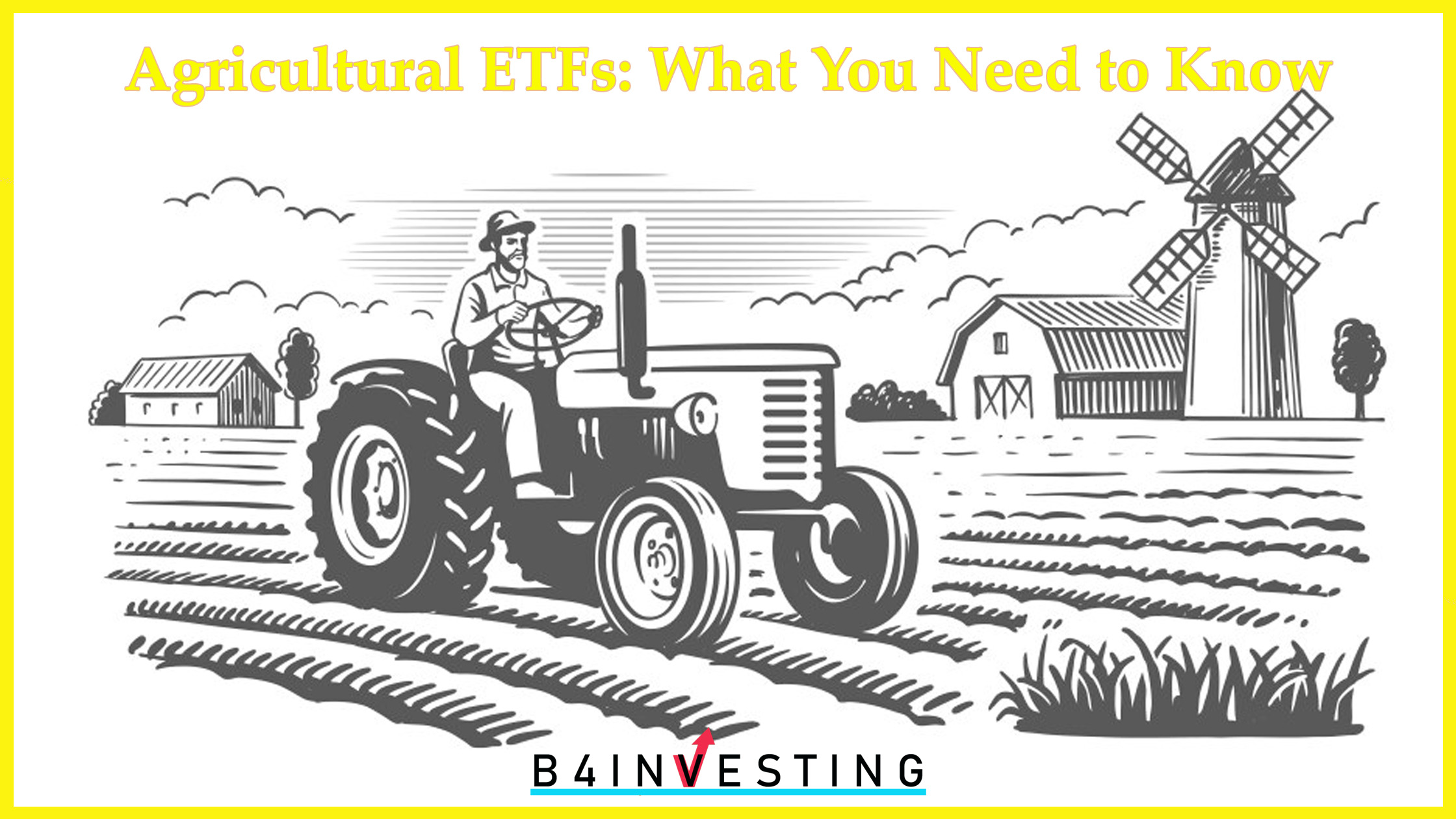
ETFs (Exchange-Traded Funds) are investment funds that are traded on stock exchanges like individual stocks. They are designed to track the performance of a specific index, commodity, sector, or other assets. ETFs offer investors a way to diversify their investments across a broad range of assets with a single investment vehicle.
ETFs have become increasingly popular among investors due to their flexibility, diversification benefits, and cost-effectiveness. They offer a convenient way to gain exposure to various asset classes and investment strategies within a single investment vehicle.
Agricultural ETFs, or exchange-traded funds, are investment funds that track the performance of agricultural commodities, companies, or indices.
Understanding How Agricultural ETFs Work
Agricultural ETFs work by collecting investor capital to buy a range of assets related to farming and agriculture. These ETFs then track the price movements of those assets.
When you invest in an agricultural ETF, you’re essentially buying shares in this portfolio. The value of your shares goes up or down with the fund’s performance. The fund is managed by authorized participants, who are there to ensure the ETF’s price reflects the value of its underlying assets.
Here’s what you need to know about agriculture ETFs:
- Diversification: Agricultural ETFs offer investors exposure to a diversified portfolio of agricultural assets, which can include commodities such as corn, wheat, soybeans, livestock, as well as agricultural companies involved in farming, equipment manufacturing, agrochemicals, and food processing.
- Liquidity: ETFs trade on stock exchanges like individual stocks, providing liquidity to investors. This means you can buy and sell shares throughout the trading day at market prices.
- Cost-Effective: ETFs typically have lower expense ratios compared to actively managed funds, making them a cost-effective way to invest in agriculture.
- Risk Management: Investing in agricultural ETFs can help manage risk associated with individual commodities or companies. Diversification across various sectors of the agriculture industry can mitigate the impact of adverse events affecting specific commodities or companies.
- Performance: The performance of agricultural ETFs is influenced by various factors including weather conditions, crop yields, commodity prices, global demand for food, government policies, and currency fluctuations.
- Types of Agricultural ETFs: There are different types of agricultural ETFs. Some track the performance of specific agricultural commodities like grains or livestock, while others invest in companies engaged in agricultural activities. Additionally, some ETFs may focus on specific regions or countries.
- Tax Efficiency: ETFs are generally more tax-efficient compared to mutual funds due to their unique structure, which can result in fewer capital gains distributions.
- Research and Due Diligence: Before investing in agricultural ETFs, it’s important to conduct research and due diligence. Understand the underlying assets the ETF holds, its expense ratio, performance history, and the factors that can impact its performance.
- Long-term Investment: Investors should consider Agricultural ETFs as part of a long-term investment strategy. Performance of these ETFs can be affected by short-term volatility in commodity prices and market fluctuations. So it’s essential to have a long-term perspective.
- Risk Factors: Like any other investment, agriculture ETFs also carry a risk though these ETFs offer diversification. Main risks are related to the agriculture industry such as weather-related risks, regulatory risks, geopolitical factors, and market volatility. Investors should be aware of these risks and assess their risk tolerance before investing.
Overall, agricultural ETFs can be a valuable addition to an investment portfolio for those looking to gain exposure to the agriculture sector while diversifying their investments. However, like any investment, careful consideration and due diligence are essential.

